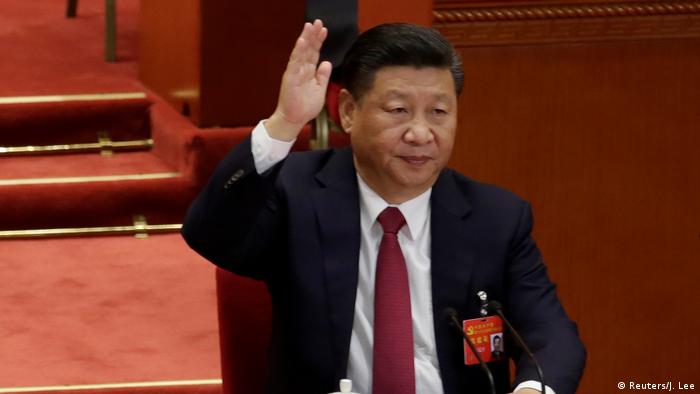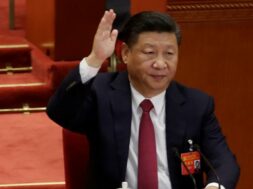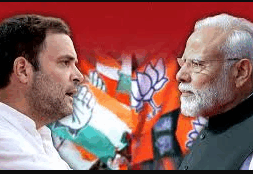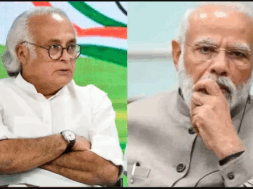
Xi Jinping Further Consolidating his Position as China’s President
Manas Dasgupta
NEW DELHI, Nov 11: The Chinese president Xi Jinping seems to have further consolidated his power before beginning his third term next year with the top Communist Party leadership ending its four-day plenary on Thursday with an important and historical resolution hailing his leadership as one of the most significant contributions in the party’s 100 years history.
Some 400 members of the powerful Communist Central Committee passed China’s resolution on “Major Achievements and Historical Experience of the Party’s Centennial Struggle” — only the third ever such resolution in its 100-year history, wrapping up the key meeting in Beijing which is expected to cement President Xi’s grip on power.
Xi, the uncontested leader of the world’s most populous nation, has been heading a pivotal plenary of the ruling party’s top figures since Monday in the Chinese capital. The Communist Party adopted only the third “historical resolution” in its 100-year history, concluding a four-day plenum by enshrining current leader Xi Jinping’s place among the party’s tallest leaders and boosting his status ahead of a congress next year that will mark the start of his third term.
The lengthy declaration called for upholding “the correct view of party history”, said an official communiqué adding that the party has “written the most magnificent epic in the history of the Chinese nation for thousands of years.”
“The Party Central Committee called on the entire party, the entire army and people of all ethnic groups to unite more closely around the Party Central Committee with Comrade Xi Jinping as the core, to fully implement Xi Jinping’s new era of socialism with Chinese characteristics,” the communiqué read. This year’s closed-door plenum paves the way for the 20th party congress next autumn, at which Xi is widely expected to be handed a third term in office, securing his position as China’s most powerful leader since Mao.
Analysts say the resolution will help Xi shore up his grip on power by setting in stone his vision for China and diminishing the role of previous leaders. The “thought” of Xi “is the epitome of Chinese culture and soul,” the text reads, saying that his presence at the “heart” of the ruling party “is of decisive importance… to promote the historic process of the great renewal of the Chinese nation.”
The communiqué adopted after the annual meeting of the Central Committee said the party had adopted a “Resolution on the Major Achievements and Historical Experience of the Party over the Past Century”, which devoted considerable space to praising Xi’s leadership and calling for the party to “resolutely uphold his core position.” It also announced the holding of the 20th Party Congress next year. It made several mentions of the need for party members to “resolutely uphold” Xi’s “core position in the party” and to “ensure that all party members act in unison.”
Observers said this would ensure Xi’s dominance — and further squeeze the already narrowed space for dissent within and outside the party — ahead of next year’s congress, when he is expected to begin a third term, having abolished term limits.
This was the third resolution on history passed by the party, and the previous two marked significant changes in its political direction. In 1945, Mao Zedong passed a resolution that heralded a turn away from Stalin’s influence and established what the party calls “Mao Zedong Thought” as its leading political ideology. In 1981, Deng Xiaoping passed a resolution that marked another turn — away from the excesses of Maoism and a one-man personality cult to the reform era that launched China’s growth and propelled it towards becoming the world’s second-largest economy.
Unlike Deng’s resolution which acknowledged past mistakes under Mao such as the Great Leap Forward and Cultural Revolution that led to millions of deaths, Thursday’s communiqué painted an entirely rosy picture of the party’s 100-year history, saying that under its leadership “the Chinese people had stood up and the time in which the Chinese nation could be bullied and abused by others was gone.”
The communiqué called on all party members to “adopt a rational outlook on the party’s history” and said “looking back on the party’s endeavours over the past century, we can see why we were successful in the past and how we can continue to succeed in the future.”
It hailed the legacies of Mao and Deng and their ideological contributions, with the two former leaders receiving seven and five mentions respectively in the more than 5,000 word-long English version of the communiqué. Xi’s two predecessors Jiang Zemin and Hu Jintao received cursory single mentions. Xi’s name was mentioned 17 times. It referred to “Xi Jinping Thought on Socialism with Chinese Characteristics for a New Era,” his ideology as “embodying the best of the Chinese culture and ethos in our times and representing a new breakthrough in adapting Marxism in the Chinese context.”
The significance of the communiqué goes beyond the past and is not merely about burnishing the legacies of party leaders. It establishes Xi as among the party’s tallest leaders since Mao and Deng. Moreover, its references to history, and airbrushing of past mistakes, will likely herald a change in how history is taught in Chinese schools and colleges, for instance by emphasising only the party’s successes and by highlighting Xi’s contributions. The many references to his “core” status and the need for “unified centralised leadership” would also mean a continuation of the centralisation of power seen during Xi’s two terms at the helm.
The communiqué hailed his leadership in responding to the pandemic, in tackling corruption, ensuring “more balanced” economic growth, and in restructuring the military, saying that the military had “taken concrete actions to safeguard national sovereignty and security.”
It defended the crackdown in Hong Kong where a sweeping national security law passed last year, in the wake of months of protests calling for universal suffrage, all but decimated the pro-democracy movement, saying the moves “helped to restore order.” On Taiwan, it said the party “firmly opposes separatist activities seeking Taiwan independence” but made no reference to unification, for long a goal of the party leadership, amid recently rising tensions across the strait.














